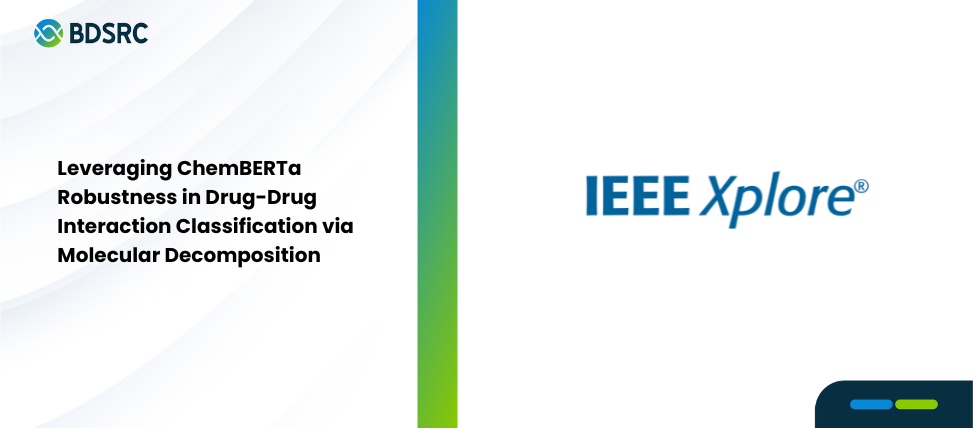Leveraging ChemBERTa Robustness in Drug-Drug Interaction Classification via Molecular Decomposition

Understanding drug-drug interactions (DDIs) can benefit us by enhancing drug effectiveness and preventing side effects that arise from consuming multiple drugs administered together. However, as the number of novel drugs increases, predicting potential DDIs becomes more challenging. Previous studies have used the molecular language model ChemBERTa to predict potential DDIs, but the predictions were only tested on unseen drugs and not dissimilar drugs, while also performing poorly. In this study, we demonstrate that a simple molecular preprocessing method using BRICS decomposition can enhance ChemBERTa robustness in predicting potential DDIs for unseen-dissimilar drugs. Specifically, we employ fragmentation with a minimum fragment size of 5 (BRICS-5), which balances the number of fragments and decomposition speed. Using this method, we were able to improve ChemBERTa robustness, reflected by an approximate increase of 1.5% in recall and 2.2% in the f1-score compared to non-decomposed molecules. Our findings suggest that this preprocessing method could be useful in the development of future AI-based approaches for solving challenging molecular tasks across different settings and various model architectures.
Authors:
Christian Kenneth, Alyssa Imani, Bens Pardamean
2024 International Seminar on Research of Information Technology and Intelligent Systems (ISRITI)
